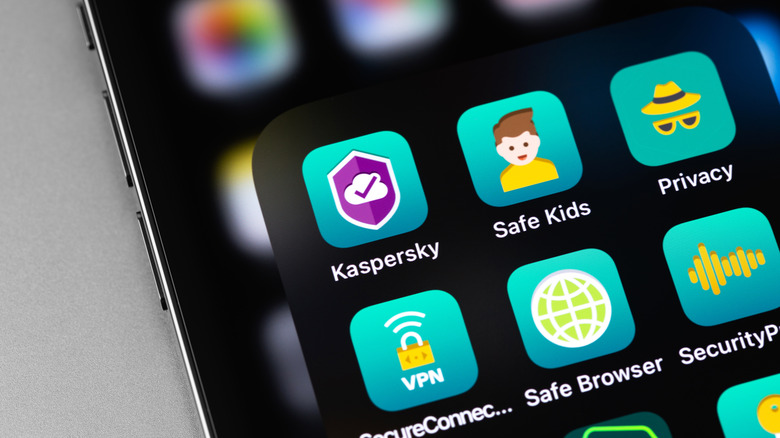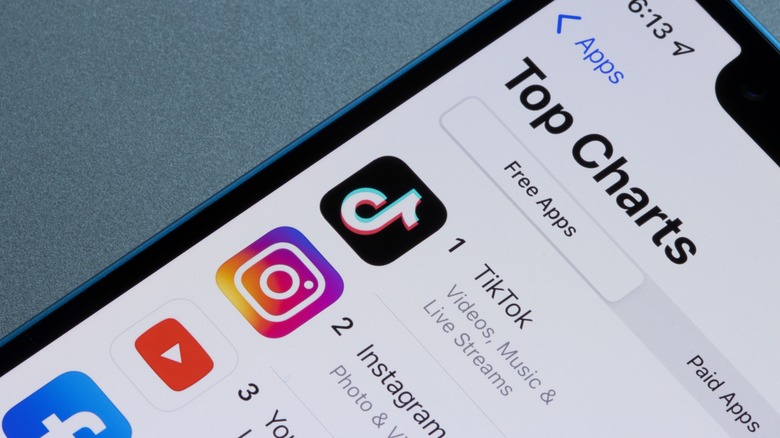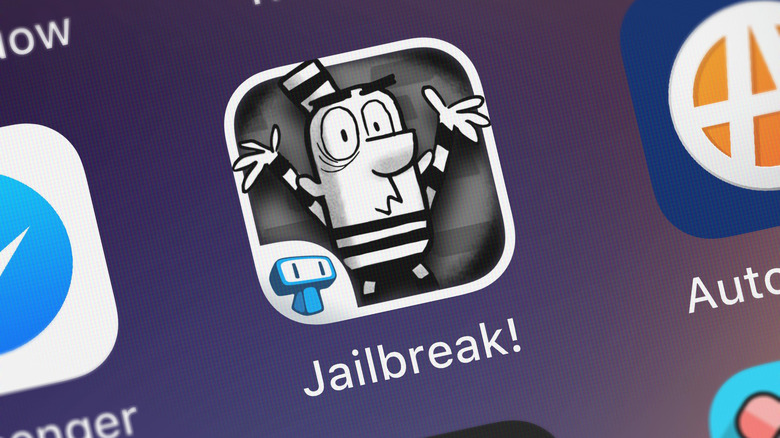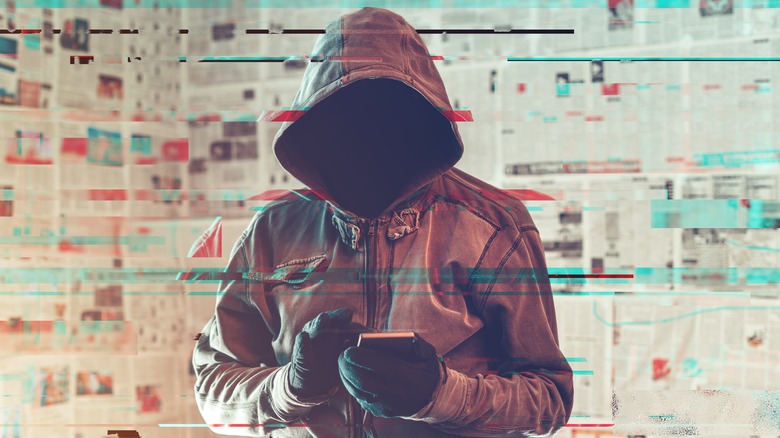Does Your iPhone Need A Virus Protection App?
Antivirus or virus protection apps don't actually exist in the iOS or iPadOS environment — at least since Apple took down all apps with "antivirus" or "virus protection" in their name (via 9to5Mac). The reason is twofold. Firstly, antivirus apps can't scan iPhones and iPads. Secondly, their titles are misleading because they only offer redundant "security" features already built into iOS, not protection against viruses.
Apple runs a tight ship, so the lack of virus protection apps is by design. Modern iPhones have layers of native security that keep them secure (via Apple). Not just from viruses (malware that infects and replicates) but other sorts of malicious attacks, too.
Also, your personal data is kept safe because access to that data is strictly restricted and monitored. Lastly, Apple pushes frequent updates and security patches that protect your iPhone without the need for supplementary third-party antivirus apps.
So the short answer to the question is: No, your iPhone does not need a virus protection app. But we'll go in-depth in the following to explore how Apple designed iPhone's iOS to be this secure. And why antivirus apps cannot work in that environment.
How Apple keeps the iPhone safe
The first line of defense is limiting the access for the user and the apps. Unlike Android, which presents little to no resistance for sideloading apps from the internet, Apple's iOS is walled off. You can only install apps from the App Store (unless you jailbreak your device, but that's a fringe case). The official catalog is closely vetted, approved, and monitored, so the risk of infection from an app — primarily how phones contract viruses and other malware — is already incredibly minuscule.
Then, it's the architecture of iOS, the operating system powering the iPhone. Modern smartphones, whether Android or iPhone, run on the Sandboxing model. It's a simple and elegant approach to security and privacy.
Essentially, every app on the iPhone (native or third-party) is isolated or "sandboxed" into a separate process. Once sandboxed, apps cannot read or interact with other apps without permission (via Apple). They don't have access to system resources (phone, camera, GPS, and such) until you grant it. If you've ever paid attention to apps requesting permissions with popup prompts, application sandboxing is why.
Now imagine a malicious app making its way onto your iPhone. It'll not be able to do any damage since it's sandboxed and sitting in the dark. It cannot harvest any data (your phone, messages, emails, or payment info) or replicate itself like a virus because it was never allowed access, neutralizing the threat (via Google).
Why iPhones don't need virus protection
Sandboxing is also why antivirus or protection apps don't work on iPhones. Antivirus apps can't read or access other apps on the phone, just like other apps can't (via Reader's Digest). Antivirus apps need elevated admin privileges to deep scan apps and user data — which can be granted on a PC but the iOS design doesn't allow the antivirus apps to see or scan other apps.
So while popular antivirus solutions like AG, Avast, McAfee, Kaspersky, and others do exist on the App Store, they are sold as "security" apps (via 9to5Mac). They replicate features already available in iOS — a cloud-based photo vault, phone tracking and wiping, or a "secure" browser, for example.
Your iPhone already backs up your photos and data. Plus, the Find My Phone feature can remotely track and wipe the phone if it's stolen or lost. Safari has built-in protection that filters and blocks malicious links. Some mobile security apps also come bundled with a VPN — the one service not native to the iPhone (via AVG). But if you need it, getting a dedicated VPN app, rather than an add-on is more practical.
iPhones aren't invulnerable
Despite the astronomically low odds, iPhones aren't immune to malware. Viruses are rare, but trojans and spyware can affect vulnerable iPhone and iPad devices. The vulnerabilities are often zero-day — the kind the manufacturer hasn't patched yet. Pegasus is an iPhone spyware that can read messages, access cameras, monitor calls, track location, and more. Apple later patched the vulnerability but not before it had infected thousands of phones (via The Guardian).
There's little the end user can do to defend against zero-day attacks like Pegasus. Apple finds and patches them regularly, so you only have to keep your iPhone updated. Naturally, antivirus apps don't offer any protection against bugs and vulnerabilities on the OS level.
Jailbreaking your iPhone also puts you at risk. It grants the user root or admin privileges to sideload apps that haven't been officially approved for the App Store. Malware can hide in unapproved, sideloaded apps and infect your iPhone (via MacWorld). This process also breaks the Apple end-user license agreement.



